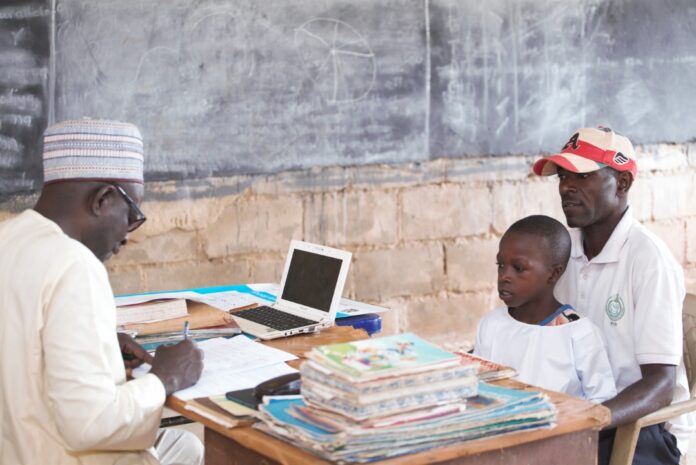On the International Day of Education (January 24th), Sightsavers Nigeria is calling on governments, organisations, and communities to take action to ensure that inclusive education becomes a reality for all children with disabilities.
Around the world an estimated 244 million children are not in formal education, and Nigeria has one of the highest rates of out of school children of any country. These children include the most marginalised learners, especially children with disabilities.
Sightsavers wants everyone to know that with the right investment and education policies, all children can have access to quality education, regardless of their abilities.
Esther Angulu, Sightsavers Program Manager for Social inclusion, said: “We call on governments and communities around the world to take action to so that children with disabilities can have the same opportunities to learn as their non-disabled peers”.
She added: “With the right support and accommodation, there’s no reason why children with disabilities can’t be educated in the same classrooms and schools as non-disabled children. Inclusive education not only improves educational outcomes for children with disabilities, but also promotes social inclusion and helps to break down barriers of discrimination”.
In Nigeria, Sightsavers has been working with government and partners on SMILE, an inclusive education project for children with disabilities in Kaduna state. The project is creating a locally driven and sustainable model of disability-inclusive education in eight schools in Jema’a.
Godson, a child with visual impairment who goes to one of the schools, has said that it is the first time he has been celebrated as a child with a disability, and that “my teacher and my classmates are now very supportive, caring and friendly towards me.” He hopes to be a teacher when he grows up.
Dr Sunday Isiyaku, Country Director, Sightsavers Nigeria, said: “In Kaduna we have seen first-hand the positive impact that education can have on the lives of children with disabilities and their families. Inclusive education is not only a basic human right, but also a powerful tool for achieving sustainable development.
“We praise the government for their work on disability inclusion so far and call for them and others to continue on this path. Together, we can ensure that no child is left behind in their quest for education and a better future”.


